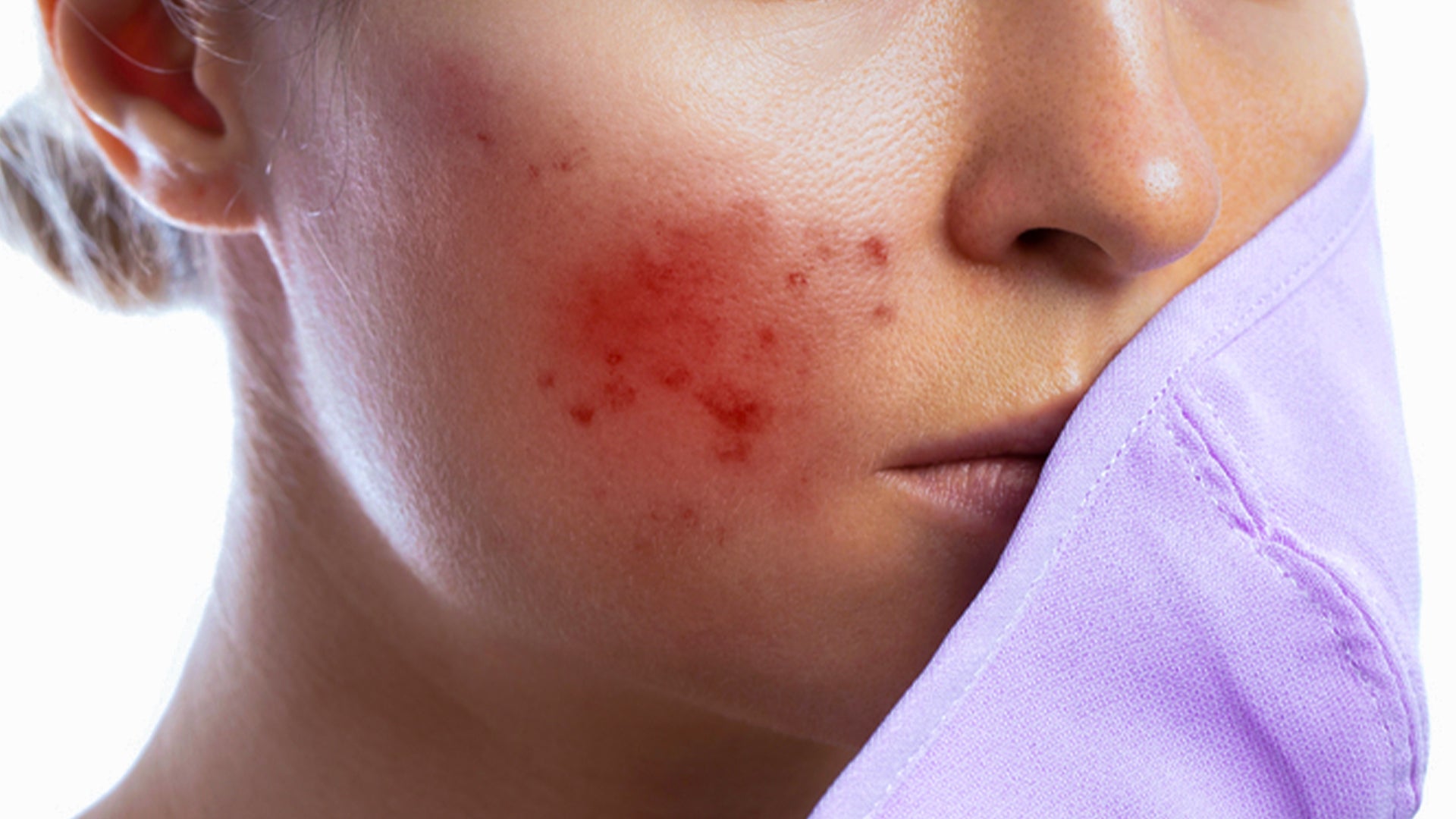Written by - Prakruthi
Acne is a skin condition that occurs when your hair follicles become clogged with oil and dead skin cells. Having acne-prone skin or sensitive skin makes you more vulnerable. There could be multiple factors that could trigger acne and breakouts (Ansell), such as -
-
Age
-
Genetics
-
Hormonal imbalance
-
Lifestyle changes.
-
Physiological factors
Once you have had the breakouts, it becomes more difficult to take care of. It is so sensitive that even a slight trigger can make acne so angry, that it can irritate you to a certain extent.
Angry acne can be a challenge, but let's break the code in a few simple steps. Here you go.
How to identify angry acne:
- Skin inflammation-
If you see your skin irritated, swollen, or inflamed in the acne affected area, you’ve made your acne angry. This could be triggered due to an allergy to certain ingredients in your skincare products or bacteria build-up.
- Redness-
Skin irritation, itching, rashes or redness in acne-affected areas can be a sign of angry acne. Dust and dirt can be the major culprits. This can also happen because of lack of hydration or exposure to UV light, which dries out the skin making it sensitive and vulnerable.
- You might feel your skin getting hot in those areas.
If you feel that the affected area is throwing hot punches at your skin, making it itchy and red with rashes, beware that you need to alter your skincare routine. You must be careful about what actually triggers your acne and makes it angry.
- More breakout -
Acne wreaks havoc when it is angry. There are more and more breakouts resulting in huge cystic acne. There can be multiple triggers to this, be it hormonal imbalance or lifestyle issues.
Let the angry acne have some nutritious treats -
- pH friendly face washes will save the day!
Face washes with ingredients like Centella or green tea extracts will add antioxidants to the skin. It will effectively hydrate and soothe the skin. Moreover, it will help to remove excess oil, dirt, and impurities that clog the pores.
Centella face washes are pH-friendly, keeping your skin barrier intact and leaving your face calm, clean, and comforted. In terms of green tea-based face washes, they are anti-inflammatory, antimicrobial, and antioxidant.
These are pH friendly cleansers that will keep your skin calm and balanced. Also, helps to reduce sebum secretion, preventing acne. Let your skin receive multiple punches of nutrition.
- Hyaluronic acid is your go-to ingredient!
Hyaluronic acid is a blessing for those with acne-prone skin. Research from 2017 suggests that hyaluronic acid can reduce redness and also control sebum production, which in turn is helpful in acne prevention. This will not only reduce inflammation and soothe your irritated acne, but it will also help to attract and lock moisture, preventing the skin barrier from being breached.
Hyaluronic acid is your best buddy that knows how to tackle angry acne. You can go with products containing enough concentration of Hyaluronic acid as per your skin type.
- Use ice to reduce the inflammation
Icing is an age-old remedy for acne and inflammation on the skin. Icing acne may help reduce pain, redness, and swelling due to inflammatory acne. However, ice may provide little or no benefit for non-inflammatory comedones such as blackheads or whiteheads. People who decide to try popping a pimple should always wrap ice cubes and frozen gel packs in a clean cloth or plastic bag. This is a temporary but effective solution. Moreover, icing your skin daily can help tighten your pores.
Bonus tip: Always use a moisturizer that is rich in ceramides. And stick to NO FRAGRANCE, NO EO based products when choosing a skincare regimen. Especially when your acne is angry.
Let your skin breathe and stay healthy!
Sources:
1.https://www.mayoclinic.org/diseases-conditions/acne/symptoms-causes/syc-20368047 (“Acne - Symptoms and causes”)
2.https://www.verywellhealth.com/acne-causes-4688896 (Ansell)
3.https://pubmed.ncbi.nlm.nih.gov/28163068/ (“Hyaluronic Acid Decreases Lipid Synthesis in Sebaceous Glands”)
4.https://www.medicalnewstoday.com/articles/ice-on-pimple#summary (“Ice on pimples: Does it help?”)






 +91 9347578980
+91 9347578980